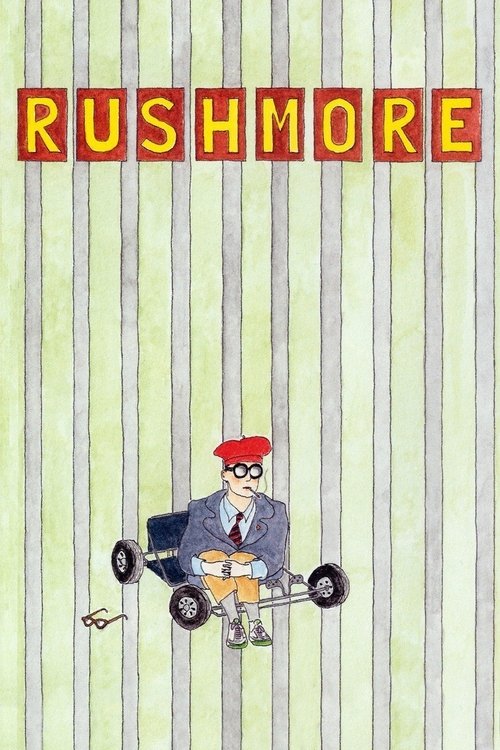
Title: Rushmore
Year: 1998
Director: Wes Anderson
Writer: Owen Wilson
Cast: Jason Schwartzman (Max Fischer),
Bill Murray (Herman Blume),
Olivia Williams (Rosemary Cross),
Seymour Cassel (Bert Fischer),
Brian Cox (Dr. Nelson Guggenheim),
Runtime: 93 min.
Synopsis: When a beautiful first-grade teacher arrives at a prep school, she soon attracts the attention of an ambitious teenager named Max, who quickly falls in love with her. Max turns to the father of two of his schoolmates for advice on how to woo the teacher. However, the situation soon gets complicated when Max's new friend becomes involved with her, setting the two pals against one another in a war for her attention.
Rating: 7.396/10
The Eccentric Symphony of Max Fischer: Unraveling Rushmore’s Quirky Brilliance
/10
Posted on July 22, 2025
Wes Anderson’s Rushmore (1998) is a cinematic tapestry woven with audacious ambition and tender vulnerability, a film that dances on the edge of absurdity yet remains profoundly human. Its heart lies in Max Fischer (Jason Schwartzman), a precocious teenager whose relentless pursuit of identity and belonging at Rushmore Academy feels both comical and achingly real. Anderson, in his sophomore feature, crafts a world so meticulously stylized that it risks alienating viewers, yet its emotional core anchored by Schwartzman’s breakout performance and Bill Murray’s melancholic gravitas grounds it in universal longing.
The screenplay, co-written by Anderson and Owen Wilson, is a triumph of tone, balancing deadpan humor with poignant undercurrents. Max’s grandiose schemes staging elaborate plays, founding obscure clubs reveal a character who is both insufferable and endearing, a paradox Schwartzman embodies with raw, unpolished charisma. Murray, as the disillusioned industrialist Herman Blume, complements Max with a quiet despair that elevates the film beyond quirky comedy. Their rivalry over a teacher, Rosemary Cross (Olivia Williams), is less about romance than a desperate search for meaning, a theme the script explores with sharp wit and subtle heartbreak.
Visually, Rushmore is a masterclass in Anderson’s now-iconic aesthetic. Robert Yeoman’s cinematography frames the world like a diorama, with symmetrical compositions and vibrant colors that mirror Max’s theatrical imagination. Yet, this stylized approach occasionally feels like a cage, constraining emotional spontaneity in favor of artifice. Scenes linger a beat too long, as if Anderson is more enamored with his own vision than the story’s momentum. Still, the film’s theatricality serves a purpose, reflecting Max’s need to control his chaotic inner world.
The soundtrack, a curated jukebox of ‘60s British rock, is less background noise than a narrative force. Tracks like The Who’s “A Quick One, While He’s Away” and Cat Stevens’ “The Wind” amplify the film’s emotional peaks, lending a nostalgic weight to Max’s coming-of-age journey. The music, much like the Rushmore Academy setting, feels both timeless and specific, a perfect backdrop for a story about clinging to dreams amid life’s messiness.
If Rushmore falters, it’s in its occasional indulgence in quirk for quirk’s sake, where style threatens to overshadow substance. Yet, its sincerity Max’s unapologetic passion, Blume’s quiet redemption ensures it resonates. Anderson invites us to laugh at Max’s absurdity while rooting for his improbable dreams, a delicate balance few films achieve.
0
0
